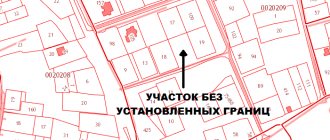This is a scary word - realtor
You find an interesting apartment option from the owner and arrange a viewing. An intermediary appears at the meeting, introducing himself as a friend/relative/colleague of the owner. He explains that the owner of the property is away and has instructed him to lead the sale. He refuses to show the power of attorney without a preliminary deposit. Some realtors act exactly like this - they pretend to be someone other than who they are, they are obnoxious and playful. Run away from these guys. At best, they will get their hands on your deal for an unauthorized 300-400 thousand rubles. The worst option is not even worth considering.
How to properly organize an apartment inspection
Since choosing a resale apartment is not an easy task, you should prepare for a personal visit to your future apartment:
- agree with the seller on the time and duration of acquaintance with the property - let them reserve enough time for you, at least 1-2 hours;
- by the time you arrive in the apartment there must be title and technical documents, and in the original - to check the layout and other issues;
- invite the owners to the meeting and look at their passports - do not hesitate to make sure who is standing in front of you when you meet in person.
Arrive ahead of the appointed time and inspect the surrounding area, the house itself and the entrance. Pay attention to the condition of windows and doors in other apartments - this may give some idea of the social level of your neighbors.
During the inspection, act methodically, using a pre-prepared list of questions. Do not allow yourself to be distracted by small talk from the essence of what is happening; you can even directly ask for silence. This will allow you to notice all the flaws in the room and get the answers you need.
You may be able to justify the proposal to reduce the price of the apartment due to identified shortcomings or circumstances. Among them may be, for example, the following:
- the entrance door to the apartment is located next to the elevator;
- corner apartment;
- electrical wiring needs to be replaced.
When can an intermediary be trusted?
A conscientious realtor never hides the truth. Upon first request, he shows a power of attorney from the owner to confirm his authority and provides documents from which it follows that the principal actually has the right of ownership of the apartment. A professional realtor will not require you to hand over a deposit - such an agreement is concluded only between the buyer and the owner. The role of the selling agent is limited to assisting in the preparation of the document and being present during the transfer of money.
How can you tell if a realtor is a scammer? A topic for a separate article.
You, as a buyer, can also enter into an agreement with a realtor, transferring to him the responsibilities of finding suitable housing. A good specialist with a developed professional sense is a godsend for those who are poorly versed in the specifics of the market. In addition, the contract provides for liability insurance to the client. If the realtor makes a mistake due to which the transaction is declared invalid, you will receive compensation for damages within the agreed amount.
On what basis?
You should definitely find out on what basis the current owner’s ownership of the property in question arose. This point is a kind of cornerstone in checking the legal purity of housing. Having an accurate idea of how the apartment came to the owner, you will be able to determine the range of documents that require verification, as well as draw conclusions about the presence/absence of third parties who can lay claim to the living space. Depending on the reason why the apartment was in the possession of the seller, the basis document can be presented:
- agreement on the transfer of ownership of housing - for privatized real estate;
- purchase and sale agreement - in case of purchasing an apartment on the secondary market;
- an agreement with a construction company if the housing was purchased in a new building;
- gift agreement;
- certificate of right to inheritance;
- a voluntary agreement or a court decision on the division of property, if we are talking about joint property of former spouses;
- mortgage agreement;
- certificate of paid share;
- a lifelong maintenance agreement in the case of obtaining an apartment under rent obligations.
Buying an apartment: on your own or with a realtor?
The most profitable investments are investments in real estate. And perhaps the most purchased piece of real estate is an apartment. How to buy an apartment so that neither the buyer nor the seller has any questions or complaints against each other? Should I buy on my own or with a realtor? Let's take a closer look.
Buying an apartment involves certain risks. When it comes to finding housing, everyone decides for themselves whether to do it themselves or hire a realtor.
Most people are confident that a realtor will remove absolutely all risks, taking upon himself the entire burden of responsibility in case of possible negative consequences. In fact, there is no such document or certificate that can only be obtained by a realtor.
In a situation where an apartment has been found and the parties are ready to enter into a purchase and sale agreement, it is necessary to understand what the buyer may encounter.
There are two significant risks for the buyer in the housing issue.
The buyer may lose the apartment
1. If it is proven that the seller of the apartment at the time of sale did not understand the significance of his actions or could not control them . In this case, the purchase and sale agreement may be invalidated by a claim, for example, by relatives of the seller <*>. After such recognition, the apartment must be returned to the seller in exchange for the payment transferred to him <*>.
One way or another, information about the mental state of the seller can be obtained from a certificate from a drug treatment and psychoneurological dispensary. The certificate can be obtained by the owner or his authorized person. However, such a certificate will only confirm the fact of registration or non-registration with these institutions, but will not provide information about the health of the owner at the time of concluding the apartment purchase and sale agreement. After all, even if the seller is not registered with these institutions, this does not mean that he is healthy.
At the same time, the legislation does not prohibit a person registered with any of these institutions from making transactions, including the sale of an apartment. When concluding a transaction with a person registered with any of the above institutions, the buyer must understand the possible consequences.
2. If the apartment was sold by an unauthorized person (not the owner). This situation is unlikely, since, even if this moment was missed at the stage of checking the apartment, the registrar will not certify a purchase and sale transaction, the party of which is not the owner or a person not authorized by him. In any case, you should carefully check the documents for the apartment and the persons indicated in it. First of all, you need to familiarize yourself with the certificate (certificate) of state registration of ownership of the apartment. It indicates the last name, first name and patronymic of the owner of the apartment. If the seller acts under a power of attorney, it is necessary to familiarize yourself with it.
Note: A power of attorney on behalf of the owner of the apartment - an individual - must be notarized. It is important to pay attention to the duration of the power of attorney (the power of attorney must be valid) and the powers listed in it (the seller must have the right to carry out all actions related to the sale of a specific apartment).
It is also necessary to check the documents on the basis of which the apartment belongs to the seller. This could be a purchase and sale agreement, exchange, donation, certificate of inheritance, etc. The purchase and sale agreement, for example, may contain a condition on the sale of an apartment with encumbrances that will be transferred to the new buyer.
The buyer risks buying an apartment with encumbrances
1. Unauthorized reconstruction and (or) redevelopment. When inspecting an apartment, it is important to check the general situation in the apartment (the presence of extra walls, partitions or the absence of load-bearing walls, a storage room in an unexpected place, rooms of a non-standard shape, etc.) with the registration certificate. In case of any discrepancies between what is seen in reality and on paper, request all permitting documentation for redevelopment (reconstruction). If there is no such documentation, you may have two options:
- refuse to purchase this property;
- purchase such housing. However, you need to keep in mind the following: if the local executive committee refuses to approve an unauthorized reconstruction (redevelopment), the housing will need to be returned to its previous form, corresponding to the technical passport <*>. Moreover, a fine will have to be paid both in the case of approval of the reconstruction (redevelopment) and in the case of refusal of such approval.
Note: For unauthorized reconstruction (redevelopment), liability is provided in the amount of 30 to 50 BV <*>.
2. Encumbrance in the form of collateral . The apartment may be pledged, for example, to a bank, when the loan for it has not been repaid. As a rule, such an apartment can be sold only with the consent of the bank, i.e. mortgagee <*>. You can check an apartment to see if it is encumbered with a collateral or the absence of such an encumbrance by obtaining a certificate from the Unified State Register of Real Estate, Rights to It and Transactions with It (hereinafter referred to as the USRNI). This certificate is issued to any person for a fee upon presentation of:
- statements;
— passport or other identity document;
— payment document <*>.
3. Encumbrance in the form of arrest . An apartment may be seized as a means of ensuring administrative or criminal proceedings. For example, a seizure may be imposed on an apartment if its owner caused damage on a particularly large scale and he does not have any other property or funds. It is almost impossible to buy an apartment that has been seized. The apartment in which the seller and his family permanently reside cannot be seized <*>. If no one lives in the apartment at the time of sale and it is seized, this means that the owner is prohibited from disposing of such an apartment <*>. Information about the arrest will be reflected in the certificate from the USRNI, which was mentioned above.
4. Right of use by third parties. All registered (registered) persons have the right to use the apartment (that is, live in it). All persons registered in the apartment are indicated in a copy (extract) of the personal account or a certificate of residence and family composition of the seller. You can get a copy (extract) of your personal account from the Distribution Center, Housing Services, Housing Cooperatives, etc. A certificate of residence and family composition of the seller can also be obtained from the executive committee at the location of the apartment. These documents can be obtained by the owner or his authorized person.
For the buyer, the best option would be to purchase an apartment in which no one is registered (registered) at the time of concluding the purchase and sale agreement.
Documents that the buyer must review
| N p/p | Document | Who can receive (who has access to the document) | |
| Buyer | The owner or his authorized person | ||
| 1 | Registration certificate | + | |
| 2 | Certificate (certificate) of state registration | + | |
| 3 | Extract from personal account or certificate of place of residence and family composition | + | |
| 4 | Certificate from USRNI | + | + |
| 5 | A document confirming the legality of ownership of the apartment (purchase and sale agreement, certificate of inheritance, privatization agreement, etc.) | + | |
| 6 | Certificate from the narcological and psychoneurological dispensary | + | |
Nowadays, people who turn to realtors are mainly those who do not have the time to collect all the necessary certificates on their own. The cost of realtor services depends on the agreed volume of assistance they provide. Thus, the cost of real estate services is determined by the Tariffs (rates) for real estate services, approved. Resolution of the Council of Ministers dated March 14, 2008 N 386. The minimum amount that realtors will have to pay if you contact them is 3 BV. This is how much a written consultation about a real estate transaction costs. The maximum cost is 105 BV. For this amount, the realtor selects housing options, collects all the necessary certificates, and provides support when concluding an agreement with the National Cadastral Agency.
As you can see, it is quite possible to check and purchase an apartment on your own. You just need to know where and what documents you can apply for.
If the apartment is inherited
You were unlucky. And this is only partly a joke. Buying such housing is risky, especially if three years have not passed since the date of inheritance. After the statute of limitations expires, the likelihood of possible surprises is noticeably reduced, but not reduced to zero. A forgotten relative can drop out of the blue at any moment, report that he did not know about the opening of the inheritance and declare his rights to the apartment that you have long considered yours. You should not discount another category of heirs - those who are entitled to an obligatory share, even if the property is bequeathed to another person.
How to choose a secondary product with a low price and not make a mistake in this case?
- Conduct a thorough collection of information, find documentary evidence of every word the seller says.
- Independently request an extract from the Unified State Register , visit the housing office and talk to your neighbors.
- Check the seller for debts in the SSP and legal proceedings.
- Make sure that the seller is the owner of the apartment and not a trustee.
- Hire a real estate lawyer to prepare the transaction.
As a result, you can either win money or suffer serious losses. A more reliable way to get a good deal is to conduct a thorough inspection of the apartment and try to reduce the price by identifying flaws.
How to insure yourself against possible claims?
The best thing you can do is give up the apartment. But if the option is very attractive, try to lay plenty of straw. Thoroughly study the certificate of inheritance and find out whether someone from the family is granted the right to lifelong residence in the apartment. Make sure that among the seller’s relatives there are no heirs in the same line as him. If so, get a written refusal of the inheritance from them. Ask the seller to draw up and notarize a statement that he undertakes to satisfy all demands of potential heirs at his own expense. Finally, insure the deal.
Title insurance provides protection if you lose title to the home you have purchased. If the court finds the transaction illegal (due to the appearance of a previously unknown heir or for other reasons that you were not aware of at the time of purchase), you will be able to get your money back. But only if the judges consider you a bona fide purchaser. This is the name given to real estate buyers who have completed all the necessary actions to verify the legal purity of the apartment.
Decide what is important to you
- it is assumed to be purchased with your own funds or with a mortgage - the latter implies additional restrictions on the question of which apartment to choose;
- what is your spending ceiling,
- desired footage,
- Does the layout of the apartment matter to you?
- which areas are suitable,
- What is more important for you is the proximity of the metro or good highways,
- Is housing on the top floors suitable?
- exclusively brick house or other options are acceptable,
- the presence of a loggia or balcony in the apartment and their dimensions,
- green yard and parking,
- Are you planning to overhaul a new apartment or just refresh the walls?
- Are you going to receive a tax deduction for the costs of purchasing housing?
If minors are registered in the apartment
The protection of children's rights is monitored by guardianship and trusteeship authorities - housing transactions involving minors rarely occur without their intervention. If a child has a share in the ownership of an apartment, the seller is required to obtain permission from the guardianship authorities to sell the home. You cannot do without such a document in cases where children are left without parents or are under guardianship. And if a minor has parents and does not have a share in the apartment, then regardless of the fact of his registration, permission from the guardianship authorities is not required. It is not easy to understand these intricacies on your own, so if you are determined to purchase an apartment in which children are registered, you should seek help from an experienced lawyer.
Be careful, children
It is known that housing on the so-called secondary market is often cheaper than new buildings. But the risks of losing a newly purchased apartment and money with such a purchase are greater. Especially if the seller is a family with small children.
It is impossible to invalidate a transaction based only on Art. 167 Civil Code
Few people know that the consent of the guardianship authorities required for such transactions does not mean anything. More precisely, it does not protect against possible problems.
RG experts discuss the legal aspects of housing transactions in the “Legal Consultation” section
The fact is that guardianship only authorizes the transaction on the condition that the small owners will be purchased housing of equal value to the one being sold. And if this condition is not met, then the purchase and sale transaction that has already been carried out can easily be considered illegal.
Our story began in the Chelyabinsk region. There, a certain citizen decided to sell the apartment in which her two minor children were registered. Each of them owned 1/3 of the share.
My mother received written consent from the guardianship authorities for the sale. Giving consent, the guardianship put forward a condition - the apartment can be sold if another housing is purchased at the same time, in which the children will receive 1/3 of the share. The purchase had to be reported to government agencies within a month after the sale of the home.
And then events developed as follows. The deal was completed. The new owner of the apartment paid for the purchase in full and celebrated a housewarming party. But she was unable to live peacefully in her new apartment.
The reason turned out to be that the previous owner, contrary to the agreement, did not purchase a new apartment for the children, which was mentioned in the consent of the guardianship authority. That is, the citizen violated the condition specified in the permit. The guardianship department demanded that the transaction be declared invalid under Article 168 of the Civil Code of the Russian Federation. This article talks about a transaction that is contrary to the law.
The upset new owner tried to defend herself and went to court. She argued that the guardianship of the transaction was illegal in the first place because it did not say how to pay the minor sellers and did not specify into which account the money should be transferred in the name of the minors after the sale of their shares.
She also found the following argument: when issuing the permit, they did not find out the opinion of the children’s father, and she, as a buyer, was not informed that the seller had to simultaneously buy housing for minors.
The local city court agreed with the guardianship's arguments entirely. And he satisfied the claim of the guardianship department, invalidating the apartment purchase and sale agreement. The property was returned to the property of the previous owner and her children. Well, the plaintiff, who never became the full owner of the new apartment, was awarded compensation in the amount of the cost of housing.
In its decision, the city court referred to Article 167 of the Civil Code, which talks about the consequences of an invalid transaction. But the Chelyabinsk Regional Court overturned the decision of its city colleagues and made a new decision, denying guardianship, and at the same time the plaintiff.
According to the appeal, the fact that the previous owner did not buy housing for her children and violated agreements with guardianship does not make the apartment purchase and sale agreement illegal. According to the appeal, the transaction was completed in compliance with all procedures, in fact it was executed and there are no grounds for invalidity. At the same time, the position in the court was explained by the provisions of Article 168 of the Civil Code, to which the first instance did not refer.
The guardianship did not agree with such a refusal and went all the way to the Supreme Court of the Russian Federation. There they studied the materials of the dispute and did not agree with the conclusions of the regional court. At the same time, the Supreme Court immediately referred to two articles of the Civil Code - Article 168 “Transaction contrary to the law” and Article 173.1 “Transaction without the consent of a government agency required by law.”
The Supreme Court of the Russian Federation indicated that the court of first instance could not invalidate the transaction based only on Article 167 of the Civil Code. This article does not establish the grounds on which invalidity is recognized. But these grounds are provided for in other articles of the same code - 168 “Transaction contrary to the law” and Article 173.1 “Transaction without the consent of a government agency required by law.”
The guardianship allows the transaction with the apartment if the children are bought equal housing. Otherwise the deal will be canceled
The Supreme Court emphasized that in the first instance they did not refer to any of these articles, and the appeal not only did not correct this error, but also incorrectly interpreted the norms to which it referred. This is what the Supreme Court drew attention to - the court based its decision on an invalid version of Article 168 of the Civil Code of the Russian Federation.
The appeal should have clarified on what grounds the plaintiff is challenging the transaction, and depending on this, determine what circumstances are significant for the dispute and affect the validity of the transaction or indicate its nullity, the Judicial Collegium for Civil Cases of the Supreme Court indicated.
And the regional court did not take into account that, according to Article 173.1 of the Civil Code, special grounds are established for invalidating transactions made without the necessary consent of a third party, a body of a legal entity or a government agency or local government body. According to the plaintiff, there was no basis for concluding that the transaction was made with the consent of the guardianship, because the defendant did not obtain consent to the alienation of real estate without providing the children with other housing, and this argument was considered important by the Supreme Court of the Russian Federation. The High Court also noted that there was no evidence of compliance with the children's rights - that the funds from the sale of the apartment ended up in their bank account or were spent in their interests. Therefore, he ordered the dispute to be reconsidered.
What will the other half say?
If the seller is married and the apartment is joint property with the spouse, it cannot be sold without the notarized consent of the latter. Often, real estate belongs to both spouses, even if they are divorced. In such cases, it is also necessary to obtain the consent of the second of the couple. Now imagine how easily a person can “lose” a passport and get a new one - clean, without stamps. Who will confirm that there is no marriage or divorce behind him? Where is the guarantee that after buying a home his ex-wife will not come and demand her share through the court? The ideal option is if the owner is married to the person with whom the home was purchased together, and the spouses are unanimous in their desire to sell it.
Apartment history: dig deeper
To understand how reliable the option you have chosen is, ask the owner to make a request for an extended extract from the Unified State Register. This document will reflect all the events that have occurred with the object over the past 20 years. It is important for you to find out if there are any dark spots in the apartment’s past, such as:
- dubious transactions, especially involving state-owned enterprises and legal entities;
- frequent resales with changes of owners;
- litigation;
- the fact of being under arrest or pledged by the bank.
If it turns out that the apartment has encumbrances or was recently at the epicenter of a conflict, you should think twice about whether to deal with it. The regular transfer of real estate from hand to hand is a red flag for the buyer. Such actions clearly reveal a fraudulent sales scheme using fake documents.
How to choose the right apartment to buy: resale has many legal nuances
With all its advantages, buying a home on the secondary market is a pig in a poke. How to choose an apartment to buy with minimal risk? A universal rule is to collect all possible information. For any deviations from the standard situation, involve specialists or look for another option.
Here are typical examples of such deviations that require special attention:
- the apartment was received as a result of privatization - if one of the residents registered in it at that time refused to participate in privatization, then he retains the right to live for life without being the owner;
- an incapacitated person or a minor will participate in the transaction - if the purchase of an apartment is contested in court, the chances of losing your purchase are very high;
- the apartment is sold by an heir , especially one who recently received an inheritance - due to the risk of judicial cancellation of the transaction by other heirs;
- The last change of owner of the apartment was registered less than 3 years ago - this is the period that provides some insurance against fraudsters or the consequences of judicial termination of previous transactions.
Minimize risks
What buyer would not want to find the apartment of his dreams - suitable in terms of characteristics and price, with a single (adult and legally capable) owner who has owned the property since its construction. Reality, alas, forces us to come down to earth. Finding a home with an impeccably clean history is a quest for the persistent and lucky. Therefore, there is nothing left to do but keep your eyes open, listen to your inner voice and follow a number of rules:
- refuse the apartment if three years have not passed since the last transfer of ownership;
- reject proxy sales options;
- pass by if the property price is noticeably lower than the market price;
- continue the search if you encounter several warning signs at once: a large number of household members, children registered in the apartment, disabled people or relatives who have left in an unknown direction;
- comprehensively check the owner of the property and the history of the apartment;
- record the fact of the seller’s legal capacity on the day the contract is concluded;
- have the transaction certified by a notary;
- Take out title insurance for at least 4 years after purchase, and preferably 7 or even 10 years.
And be sure to believe that you will find an apartment that you can buy without hesitation or fear. Spare no time and effort - they will more than pay off in stability and peace of mind.
How to choose an apartment with a low price
Housing on the secondary market itself is 20-30% cheaper than in new buildings. However, on the secondary market the price range is quite significant. On the one hand, the cost of an apartment is influenced by objective factors - the area, wall material, footage, number of floors, condition of the house, and the like. On the other hand, subjective reasons can force the seller to reduce the price:
- moving,
- urgent need for money,
- the apartment is mortgaged and will soon be put up for auction,
- conflict situation.
In each of these cases, there is a risk of falling for scammers and, at a minimum, spending money on a trial. Or even lose both your apartment and your money.











